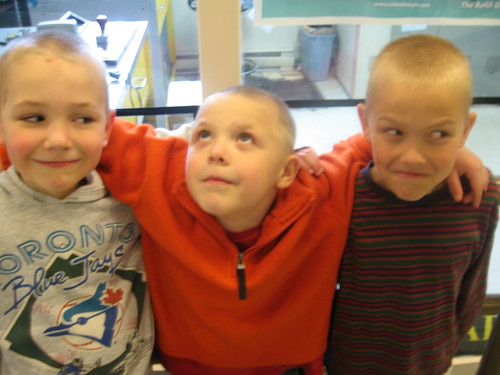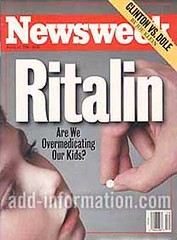
Here's an email I just received...Click read more...
Just aired last week, you can now watch the shocking BBC documentary Secrets of the Drug Trials on the association between Paxil and suicide here:
http://news.bbc.co.uk/2/hi/programmes/panorama/6291773.stm
Although it focuses on children and Paxil, there is really no clinical difference between any of the SSRI antidepressants and children or adults with regards to suicide and self harm.
This case is but an example, encapsulating the professional/institutional
betrayal of trust by big pharma, gov't regulators and doctors/researchers, and the triumph of marketing over science.
What this documentary exposes is the corrupting influence in pharmaceutical science which has become almost natural and easy -- the product not only of greed and self-interest, but of established professional and organisational practice.
As one of the mother's (who lost a child to suicide while on Paxil) interviewed in the documentary put it, "it's despicable".
-a
--------
http://news.bbc.co.uk/2/hi/programmes/panorama/6291773.stm
Drug company 'hid' suicide link
Secret emails reveal that the UK's biggest drug company distorted trial results of an anti-depressant, covering up a link with suicide in teenagers.
Panorama reveals that GlaxoSmithKline (GSK) attempted to show that Seroxat (Paxil) worked for depressed children despite failed clinical trials.
And that GSK-employed ghostwriters influenced 'independent' academics.
GSK told Panorama: "GSK utterly rejects any suggestion that it has improperly withheld drug trial information."
GSK faces action in the US where bereaved families have joined together to sue the company.
As a result, GSK has been forced to open its confidential internal archive.
Karen Barth Menzies is a partner in one of the firms representing many of the families.
She has examined thousands of the documents which are stored, box upon box, in an apartment in Malibu, California.
She said: "Even when they have negative studies that show that this drug Seroxat is going to harm some kids they still spin that study as remarkably effective and safe for children."
GSK's biggest clinical trial of Seroxat (Paxil) on children was held in the US in the 1990s and called Study 329.
Child psychiatrist Dr Neal Ryan of the University of Pittsburgh was paid by GSK as a co-author of Study 329.
In 2002 he also gave a talk on childhood depression at a medical conference sponsored by GSK.
He said that Seroxat (Paxil) could be a suitable treatment for children and later told Panorama reporter Shelley Jofre that it probably lowered rather than raised suicide rates.
In amongst the archive of emails in Malibu, Shelley was surprised to find that her own emails to Dr Ryan from 2002 asking questions about the safety of Seroxat (Paxil) had been forwarded to GSK asking for advice on how to respond to her.
She also found an email from a public relations executive working for GSK which said: "Originally we had planned to do extensive media relations surrounding this study until we actually viewed the results.
"Essentially the study did not really show it was effective in treating adolescent depression, which is not something we want to publicise."
But the article was published in the Journal of the American Academy of Child and Adolescent Psychiatry which says it ranks as number one in child mental health in the world.
The editor in chief of the British Medical Journal, Fiona Godlee, said that what she calls the "blind-eye culture of medicine" should be exposed by professionals.
She has written in response to the Panorama film: "We shouldn't have to rely on investigative journalists to ask the difficult questions.
"Reputations for sale are reputations at risk. We need to make that risk so high it's not worth taking."
The Medicine and Healthcare Products Regulatory Authority (MHRA) began a criminal investigation into GSK three years ago but no action has been taken yet.
A spokesperson told Panorama that the investigation has been given substantial additional resources and remains a high priority.
Seroxat (Paxil) was banned for under 18s in 2003 after the MHRA, revealed that GSK's own studies showed the drug actually trebles the risk of suicidal thoughts and behaviour in depressed children.

No comments:
Post a Comment